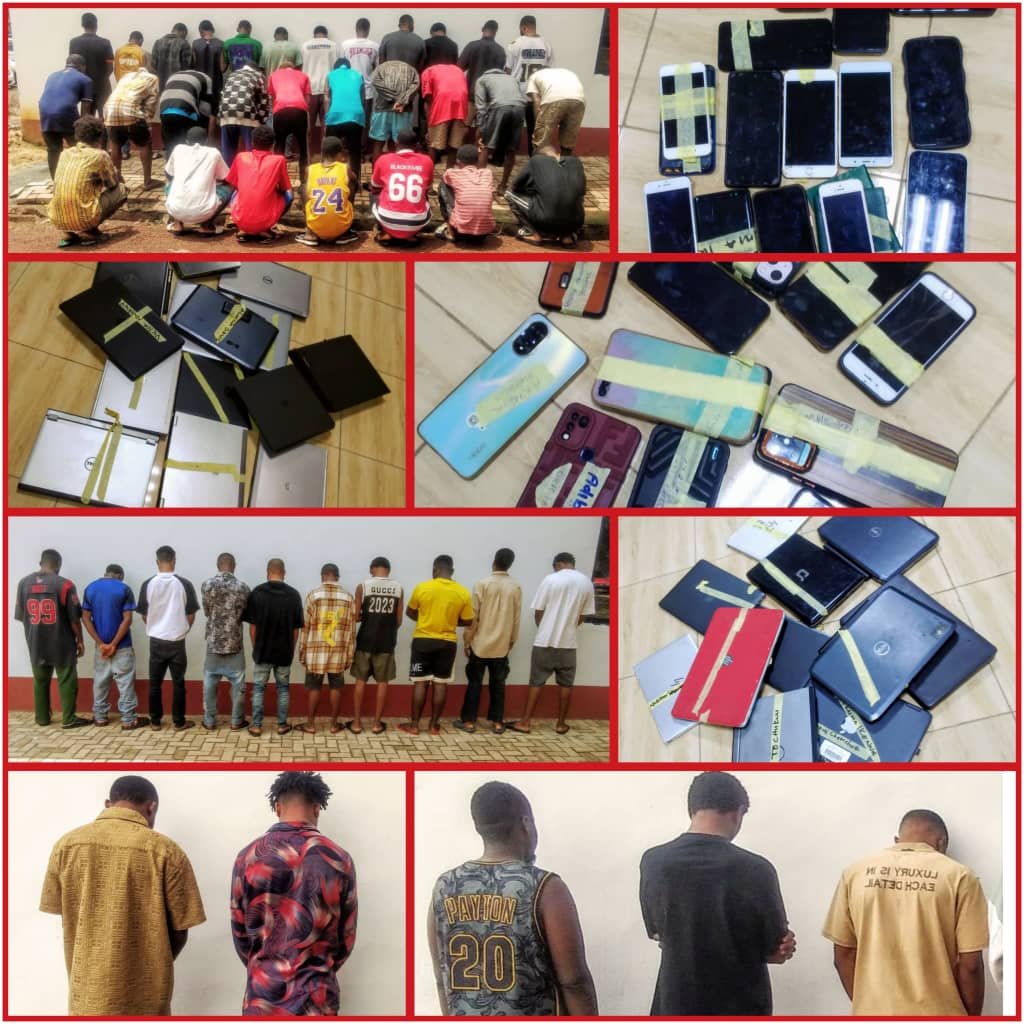The Federal High Court in Abuja has granted bail to 109 foreign nationals accused of cybercrime, money laundering, and illegal residency in Nigeria.
Justice Ekerete Akpan set bail at N1 billion, with stringent conditions for the defendants.
The accused, citizens from countries including China, Indonesia, Vietnam, the Philippines, Thailand, Brazil, Malaysia, and Myanmar, are charged with engaging in a fraudulent gambling platform operation that resulted in significant financial losses.
Police claim the hackers targeted Nigerians and global victims by promoting unregistered gambling sites like 9f.com and c2.top, manipulating data to appear authentic.
Justice Akpan on Friday ordered that each defendant provide five sureties, each with a N200 million property in Abuja.
The sureties must also submit affidavits of means, property title deeds, and residential verification, adding that the accused must surrender their international passports and are prohibited from leaving Nigeria until the trial’s completion.
The case is adjourned until February 2025.
“The defendants have pledged to remain within Nigeria and cooperate fully with the trial,” said their legal representative, Dr. Ogwu Onoja, (SAN).
However, prosecution counsel, Mr. A.A. Egwu, stressed the importance of bail conditions that ensure the defendants’ attendance.
This high-profile case involves accusations of cybercrime under Nigeria’s Cybercrime Act, including manipulating computer networks for fraudulent gains.
The defendants are also accused of violating immigration laws by overstaying their business permits.
“This case highlights the need for stringent measures against foreign cybercriminals targeting Nigerians,” stated a police spokesperson.
The trial will resume in February 2025, as authorities continue to investigate the operation of the fraudulent gambling networks.



